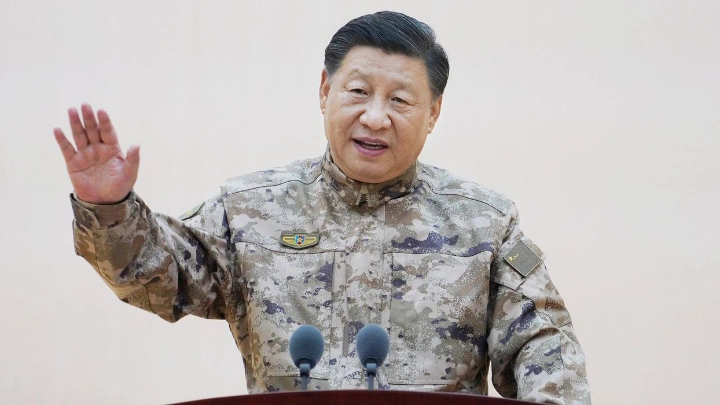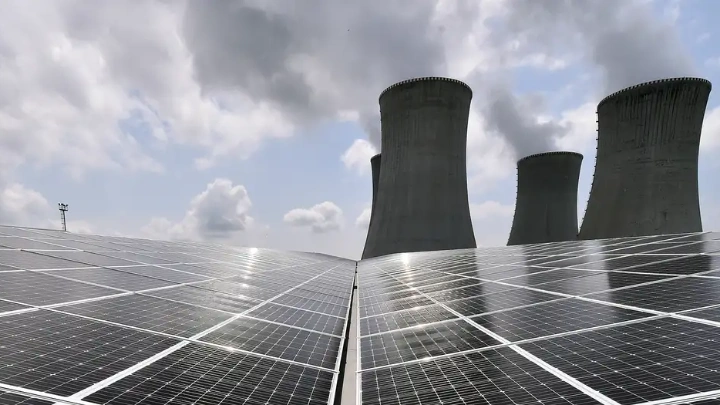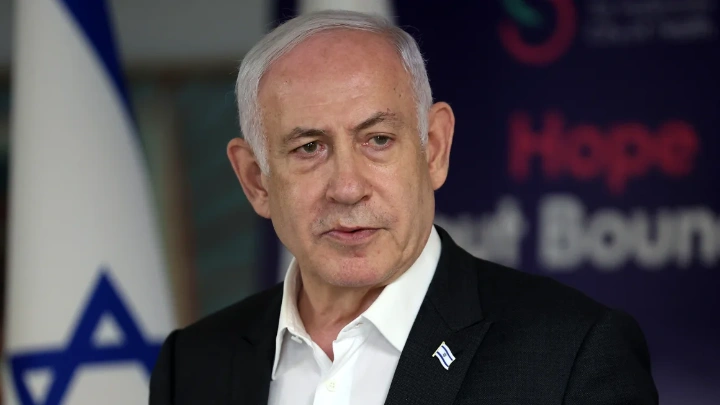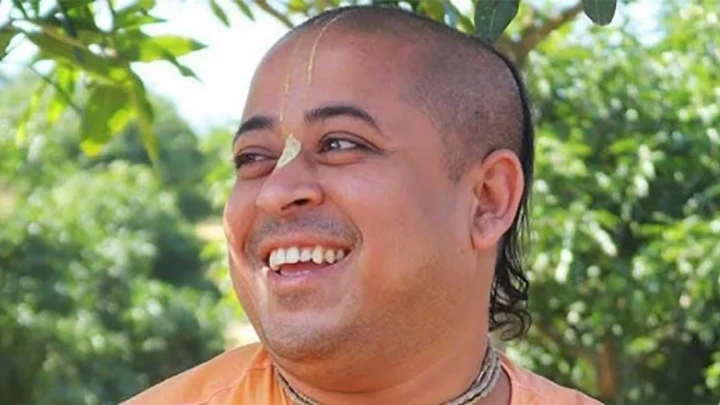How Xi Jinping's 10 years in power changed China
Shining BD Desk || Shining BD
As President Xi Jinping approaches 10 years in power, experts say his rise has brought dramatic changes in China and abroad. But his revisions may now pose a self-made dilemma.
When Xi Jinping assumed office, almost a decade ago, there were expectations that he would be a reformer, but as he began to tighten control over society and intensify crackdowns on various sectors, international leaders and China observers quickly realized things would be very different.
Soon after he came to power, Xi launched a series of anti-corruption campaigns, targeting political opponents and consolidating his control over the Chinese Communist Party (CCP).
"From the beginning, he used the selective anti-corruption campaigns to remove political opponents," said Hsin-Hsien Wang, an expert on Chinese politics at the National Chengchi University (NCCU) in Taiwan.
"Additionally, he also tried to institutionalize his concentration of power," Wang told DW. "Unlike other authoritarian leaders, who achieve power concentration through oppression, Xi established new institutions to broaden the scope of his power. These moves help to further institutionalize his authority."
The Xi Jinping Thought
In addition to power concentration, Xi also increased efforts to promote the concept of the "China Dream" while designating his trademark ideology of "Xi Jinping Thought" as the guiding principle for the party. "He also carried out various reforms," Wang continued. "In terms of ideology and his own historical status, he introduced Xi Jinping Thought and passed many laws."
The Xi Jinping Thought doctrine is seen as a blueprint for consolidating and strengthening power at three levels: for the nation, the party and for Xi himself.
To establish his own legacy within the CCP, Xi initiated a complicated process of discarding some paradigms from the "reform and opening era" while keeping other features from that particular period in Chinese history. "He is taking a path that's different from Deng Xiaoping, which is highlighted by key concepts such as 'common prosperity,'" Wang explained. "He is walking away from Deng's legacy while establishing Xi Jinping's own legacy."
Other experts think Xi used the last decade to turn the CCP's collective leadership into a personal leadership. "This is the biggest change to China's social and political structure since Xi came to power," said Teng Biao, a Chinese legal scholar based in the United States. "While the CCP has been in control of China since 1949, the momentum of reform since the early 1990s has been stifled by Xi."
To further consolidate his power in the CCP, China's National People's Congress abolished presidential term limits. And following the 20th Party Congress, Xi secured an unprecedented third term as president by surrounding himself with loyalists. "Many Western countries were expecting China to gradually realize democracy and an open society through market-oriented reforms and integration into the international economic system, but this expectation didn't materialize," Teng told DW.
"This result pushed Western countries to pivot away from the engagement policy, and the changing international environment has also profoundly impacted China's political development and economy," he added.
Tightening control over society
Apart from concentrating power around him, Xi has also tightened control over civil society and intensified his crackdown on different communities over the last 10 years. In 2015, authorities arrested hundreds of human rights lawyers across China, several of whom were imprisoned while others had their licenses revoked for taking on sensitive cases.
"The limited space that used to exist in civil society during the 'reform and opening up' period has been suppressed by Xi over the last decade," said Teng. "Since he took power, human rights lawyers, family churches, the feminist movement, and NGOs have all been brutally suppressed by Chinese authorities. Basically, all kinds of civil society development have stopped."
Additionally, China began to put a huge number of Uyghurs and other ethnic minorities in Xinjiang into internment camps in 2017, with the United Nations estimating that more than one million Uyghurs may have been targeted in this campaign. Despite repeated condemnation from human rights groups and foreign governments, China has characterized these camps as "vocational training centers" and claimed the goal of these programs is "combating extremism."
Elsewhere, following a months-long pro-democracy protest in Hong Kong in 2019, authorities and police responded by arresting and prosecuting thousands of protesters. And in July 2020, China's legislature imposed a national security law on Hong Kong, which further criminalized most civil society activities and created an exodus of people from the former British colony.
The situations in Hong Kong and Xinjiang "have turned out to be so much worse than many of us would have predicted at that time," Sophie Richardson, China director at Human Rights Watch, told DW. "I think that says a great deal about how Xi and his allies see particular communities as a threat."
Some experts say while the human rights situation in China had begun to worsen before Xi took power, the pace of deterioration has accelerated since he became president. "Even though they were already severely suppressed prior to Xi's reign, people who support democracy and freedom in China still had hope that through their efforts and sacrifices, they could enlighten people and promote rule of law in China," said Yaqiu Wang, senior China researcher at Human Rights Watch.
"But since Xi became China's top leader, he has suppressed the morale in civil society and made many people feel hopeless. As a human rights worker, I think the change is profound and huge," she told DW.
Xi's international ambition
While he has focused on consolidating his authority at home over the last decade, Xi also launched a series of ambitious international initiatives to expand China's global influence. He initiated the massive, multibillion-dollar Belt and Road Initiative, facilitated Beijing's expansion in the South China Sea, and used China's economic leverage to deepen its influence in the UN system. The aggressive style of diplomacy that emerged during Xi's reign has become known as "wolf warrior diplomacy," which is perceived very differently at home and abroad.
Wang from the NCCU said Xi's rise to power has exacerbated the competition between China and the US, as Beijing's aggressive diplomatic style sparked concern in the United States. "Chinese aggression in the East China Sea, South China Sea and the Taiwan Strait have alarmed the US and other neighboring countries," he told DW.
"While competition between Beijing and Washington may be hard to avoid, Xi's emergence has, directly and indirectly, accelerated the pace of competition. While US-led Western countries try to adjust their attitudes towards China, Beijing views these moves as part of 'the national rejuvenation.' China thinks the US is trying to contain its rise by working with neighboring countries," he added.
Across the Taiwan Strait, analysts think the biggest change Xi has ushered in is to push the political vagueness of Beijing's position regarding unification with Taiwan.
"In the speech he gave on January 2, 2019, Xi clearly stated that the precondition for China and Taiwan to reach a consensus is for them to agree on unification," Wang told DW.
"In that speech, Xi clearly said Beijing would actively explore the option of fulfilling unification with Taiwan through the 'One Country, Two Systems' model, and all political parties or individuals supporting unification are welcome to conduct 'democratic negotiation' with Beijing. Since that speech, all public statements from Beijing about Taiwan have focused on fulfilling the goal," he added.
And with US policies towards Taiwan taking a major shift in recent years, with US President Joe Biden repeatedly saying Washington would defend Taiwan in the event of a Chinese invasion, Wang says this fundamental shift pushes Beijing to declare anti-foreign interference and anti-independence as the two main goals for unification.
No democratic optimism in sight
As China enters another five years under Xi's rule, Chinese scholar Teng Biao does not think Xi will relax his control over society, nor does he think there will be any attempt to improve the human rights situation or rule of law in China. "He [Xi] would categorically reject any possibility or proposal to move China towards constitutional democracy," Biao told DW.
"However, he also faces the dilemma of finding the balance between economic and political stability. The Chinese economy was already in great difficulty due to some policies he has enforced, including zero-COVID strategies and the crackdown on private entrepreneurs." As a result, there could be "political instability" on the horizon, according to Teng.
But, "when it's time to choose between the two, both Xi and top leaders in the CCP will prioritize regime stability," he said.
By William Yang Taipei
Shining BD
























